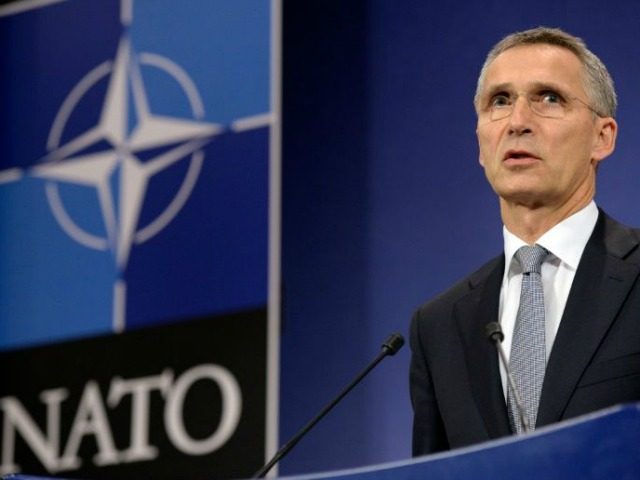North Atlantic Treaty Organization (NATO) Secretary-General Jens Stoltenberg said on Wednesday the Atlantic alliance must counter China’s growing influence in the Pacific, working closely with allies such as Australia, Japan, New Zealand, and South Korea.
“This is not about moving NATO into the Pacific, but this is about responding to the fact China is coming closer to us,” Stoltenberg told Reuters during a visit to Australia.
The NATO chief recommended “investing heavily in critical infrastructure in Europe, increased presence in the Arctic and also increased presence in Africa, and in cyberspace” to counter China’s influence.
“For me it is extremely useful to listen to Australia, with the knowledge, the experience, and just the presence in this region, that provides you with an understanding which is important for NATO,” he said.
Stoltenberg said he spoke with new U.S. Defense Secretary Mike Esper while he was also visiting Australia and was told the United States has not yet made a decision about deploying more intermediate-range weapons to the Indo-Pacific region to counter China’s growing missile threat. The Chinese have lately been accusing America of withdrawing from the Eighties-era Intermediate-Range Nuclear Forces (INF) treaty because the U.S. wants to spread its missiles across the Pacific.
Stoltenberg addressed a major U.S. concern about the potential security threat posed by Chinese domination of 5G wireless networking hardware, saying NATO agrees 5G “will be a building block of society” and is “working on formulating a way to secure its own technology.”
Stoltenberg evidently did not provide details of how NATO intends to establish such data security in his interview with Reuters. He has previously expressed concern about the U.S. threatening to curtail information-sharing with countries that use Chinese 5G technology and insisted NATO member nations can make their own decisions about data security, provided there are “some minimum standards for how we deal with these challenges,” and said NATO needs more time to “analyze the security implications” of Chinese technology.
During an interview with CNBC on Wednesday, Stoltenberg said NATO is also monitoring China’s increased presence in the Arctic, viewing it as another route by which China is “coming closer” to Europe.
The Chinese are openly interested in developing oil and natural gas resources in the Arctic as well as establishing trade routes and telecom lines as part of their Belt and Road (BRI) infrastructure initiative, a plan sometimes referred to as the “Polar Silk Road” element of BRI. The U.S. has also accused China of having military objectives in the Arctic.
NATO members made it clear when observing the 70th anniversary of the alliance in April that while it was formed in opposition to the Soviet Union, its most serious concern is now Communist China. The challenge posed by China is more difficult in many ways, not least the tremendous amount of commercial engagement between China and Europe.
“We are partners on one hand and competitors on the other, not only regarding the economy, but we also have very different political systems,” as German Chancellor Angela Merkel put it in April.
“China is set to become the subject of the 21st century on both sides of the Atlantic. China is a challenge on almost every topic. It is important to gain a better understanding of what that implies for NATO,” said Merkel’s foreign minister, Heiko Maas, at around the same time – almost precisely echoing what Secretary-General Stoltenberg would say in Australia four months later. It does not appear that understanding of the Chinese threat has gotten any closer during those months, but China certainly has.

COMMENTS
Please let us know if you're having issues with commenting.